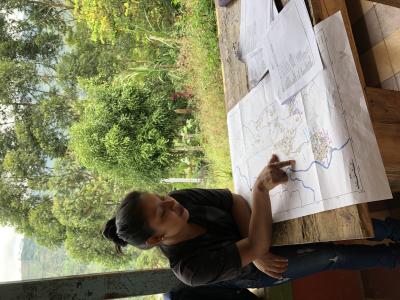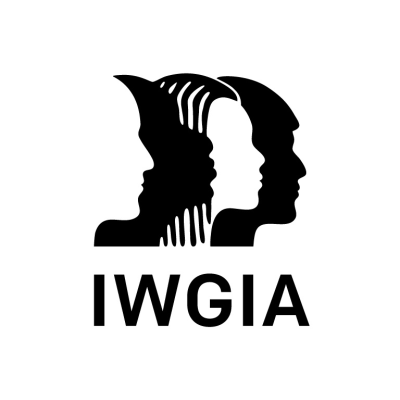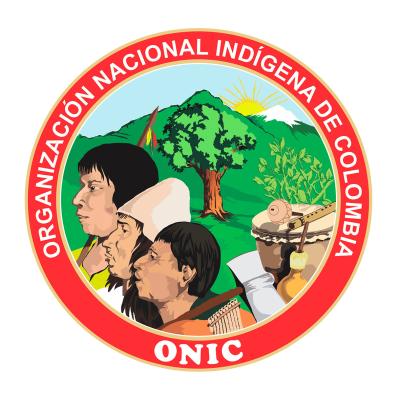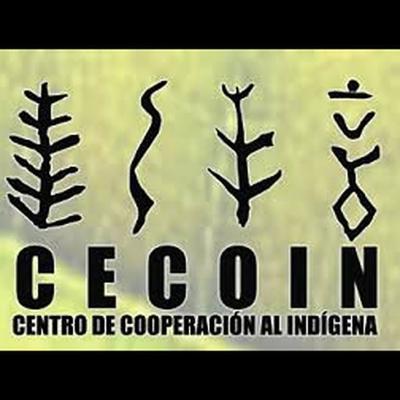Colombia: What has it meant to be part of the Indigenous Navigator?

In Colombia, the Indigenous Navigator has been coordinated by two national partner organisations: Centro de Cooperacion al Indigena (CECOIN) and Organización Nacional Indígena de Colombia (ONIC).
Reflecting on their experience with the Indigenous Navigator, CECOIN notes that, “the process of analysing the data has been an opportunity to mainstream and aggregate the issues of the community, presenting them in their own context”. However, the complexity of the human rights framework remained a challenge, especially as many of the concepts and language used are based on Western concepts, which Indigenous communities are not as familiar with. “Implementing the questionnaires required adaptation depending on the level of familiarity with Western concepts in which the questions were based.” Specifically, in communities living in rural settings, people were less familiar with the concepts of the survey. This meant that an increased focus on training and sensitisation was needed to explain the survey and translate the questions so they could be understood in their cultural context.
However, the experience differed from community to community. “In other communities, where people were more familiar with the logic of the information being asked in the questionnaire, or those who were closer to Western concepts, they quickly understood the idea of the survey.” This made it possible to discuss and interpret the questions and concepts and conduct the questionnaires.
CECOIN specifically reflects on the experience in the community of Karmata Rua, where “the application of the questionnaire led to an in-depth discussion of the concept of poverty in their community. Poverty is a deeply subjective measure, and the community gathered together to make a list of situations in which a person could be understood to be poor.” The questionnaire allows for contextual interpretation of concepts, but is fundamentally rooted in the international human rights framework and understanding of poverty as related to material income and access to services. It fails to capture these more community-based interpretations of poverty that also consider quality of life and community cohesion.
CECOIN points out that, “for the communities that participated in the analysis of the surveys, the most important part in the process was the realisation of the large set of norms and laws that contain special rights for Indigenous Peoples.” This was of special concern to the communities, as they recognised that in practice, their application remains very limited.
The data analysed served the communities, giving them the tools to reflect on issues in a collective process. They were able to use the data to prioritise certain themes in the development of their own plans and could use these plans to develop key pilot projects, community-owned and driven forward.
Despite the fundamentally powerful experience of implementing and working with the Indigenous Navigator’s framework and tools, “it continues to be a challenge for the Indigenous communities to access and convert the data and results to a working instrument that can be used in a continuous way,” CECOIN shares. Digital literacy and access remain a constraint to using the global portal.
Organización Nacional Indígena de Colombia (ONIC) is a national Indigenous Peoples organisation. When contacted to provide feedback on their experience with the Indigenous Navigator, ONIC expressed that “being part of the INI has been a positive experience, as it has been an opportunity to assist the communities in identifying and characterising the main issues at political, economic, social and cultural levels.” Like CECOIN, ONIC also emphasises “the challenge in the application of the survey as the questions were based on broad concepts such as poverty, development, and malnutrition. Despite an agreed understanding of these subjective concepts at the international human rights level, Indigenous Peoples and communities often have a different vision of these concepts.”
ONIC highlighted the advocacy component of the Indigenous Navigator project as, “one of the most influential experiences. With the data collection and analysis of the results completed, the communities were able to work together with ONIC to identify the main issues within their communities. Further, “the communities could reference and use the Indigenous Navigator when addressing public authorities – strengthening their evidence-based advocacy efforts.”
The importance of the Indigenous Navigator lies in the fact that the communities provide truthful information, they share their reality on the ground, and in turn are empowered to become agents of advocacy and change. Data collected through the Indigenous Navigator provides communities and national organisations with references and arguments to support their grounds for complaints to regional, national, and international organisations responsible for guaranteeing Indigenous Peoples rights. In addition, the Indigenous Navigator helps inform Indigenous Peoples of their rights as Indigenous Peoples and nations.
Using the Indigenous Navigator’s data, ONIC has established contact with a wide range of both national and international organisations and government representatives to advance the self-determined development of Indigenous Peoples in Colombia.



Centro de Cooperacion al Indigena - CECOIN
Contact
